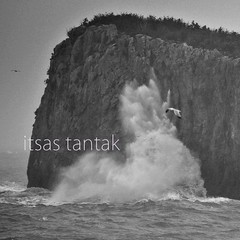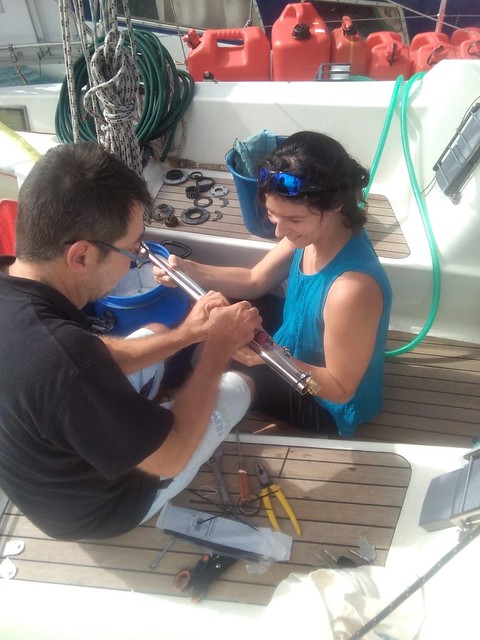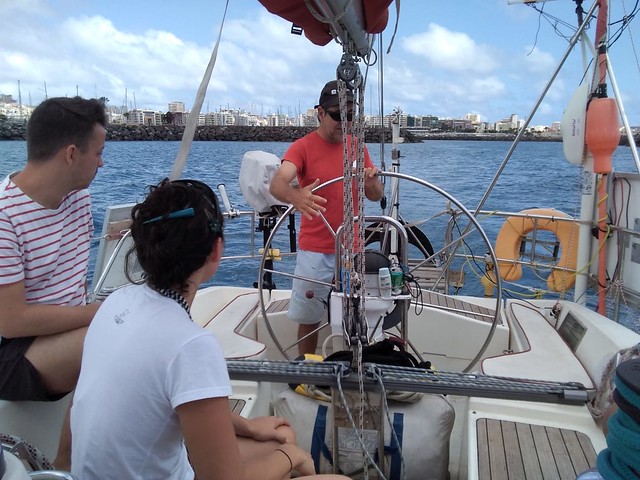 Last night we participated in the radio program Itsas tantak (“drops of the sea” in Euskera), presented by Edu Aráujo in Onda Vasca. It is broadcast every Sunday night, dedicating 120 minutes to tell salty stories in one way or another: surfing, sailing, maritime archeology, literature, biology and the environment.
Last night we participated in the radio program Itsas tantak (“drops of the sea” in Euskera), presented by Edu Aráujo in Onda Vasca. It is broadcast every Sunday night, dedicating 120 minutes to tell salty stories in one way or another: surfing, sailing, maritime archeology, literature, biology and the environment.
Sailing Living Lab is a project directed by Diego de Miguel Murillo, open to collaborations with companies, people in general and other entities interested in testing new technologies in the open sea. Every so often, from the Onda Vasca program, they call Diego to follow up on the evolution of this initiative, inviting other collaborators to the program to talk about the latest experiences.
On this occasion, in the Research Group in Technologies, Management and Biogeochemistry of the ULPGC, we had the opportunity to tell how our participation in the MARCET project is intertwined with Sailing Living Lab, in an interview that can be heard from the 30th minute onwards on the podcast.
In the framework of the MARCET project (Macaronesian network of knowledge and technology transfer – interregional and multidisciplinary-, to protect and monitor cetaceans), and under the concept of “floating laboratory”, this new collaboration helps us to study the distribution and concentration of microplastics in the Macaronesian oceanic waters. In addition, it is a clear example of how projects such as Sailing Living Lab can help to transfer and develop a device that is originated within the scientific community and needs to be tested before putting it on the market.
 One of the fundamental pillars of our participation in the MARCET project is to expand the microplastic sampling capacity in the macaronesian region through the implication of whale watching vessels, such as Spirit of the Sea, a collaborating entity in the MARCET project with whom we will carry out our first tests in this field in Gran Canaria. In addition to this, thanks to Diego, a channel of coparticipation has been opened in the world of recreational navigation that allows us to expand our sampling effort at sea through the concept of citizen science.
One of the fundamental pillars of our participation in the MARCET project is to expand the microplastic sampling capacity in the macaronesian region through the implication of whale watching vessels, such as Spirit of the Sea, a collaborating entity in the MARCET project with whom we will carry out our first tests in this field in Gran Canaria. In addition to this, thanks to Diego, a channel of coparticipation has been opened in the world of recreational navigation that allows us to expand our sampling effort at sea through the concept of citizen science.
The vast majority of people who sail are aware of the need to preserve the good environmental health of the sea and thus, thanks to the collaborative nautical sector and to committed whale watching companies, we will achieve the objective of expanding the sampling effort and therefore increase the knowledge on the state of plastic pollution in the macaronesian region.

